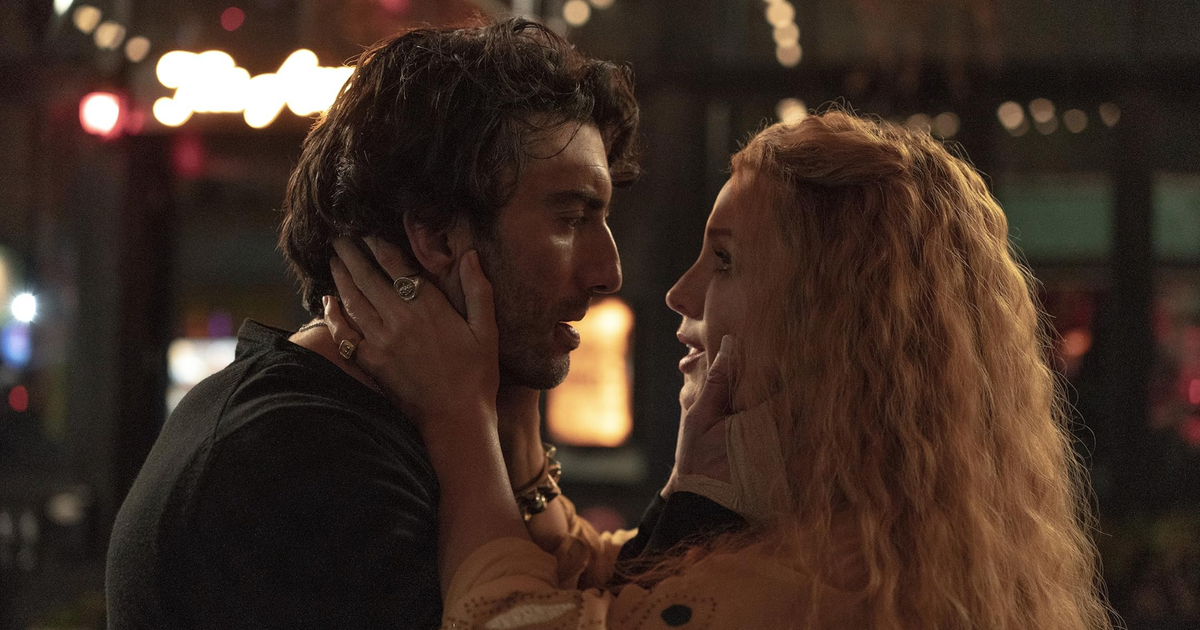It Ends With Us is the idea that love, while initially seen as a positive force, it can sometimes act as a deceptive facade. The protagonist, Lily Blossom Bloom discovers that the love she seeks is not just about romance but about mutual respect and understanding.

Also Read: Cuckoo Review: An Entertaining Horror-Thriller
The film is not a love story but a powerful tale of resilience. Lily’s journey is one of self-discovery, where she learns to break free from the cycle of emotional and physical abuse that defined her mother’s life.
The narrative explores Lily’s relationships with two men in her life, Ryle Kincaid and Atlas Corrigan. These relationships serve as parallels to her parents’ troubled marriage with Ryle representing the dark side of love and Atlas embodying the kindness and support Lily has longed for.
Blake Lively’s portrayal of Lily is a highlight of the film. She is a complex character juggling her ambitions with the emotional scars left by her parents’ relationship.
Lively’s performance captures Lily’s vulnerability, strength and determination to forge a different path for herself.
Justin Baldoni, who also directs the film plays Ryle, a neurosurgeon whose exterior hides deeper, more troubling issues.
Ryle’s character arc is crucial to the story as it reveals the darker aspects of relationships and how they can mirror past traumas.
Brandon Sklenar’s Atlas is a character many viewers will wish had more screen time. His relationship with Lily is a source of comfort and safety, contrasting sharply with her relationship with Ryle.
Baldoni’s direction is careful. He balances multiple narrative threads within the film’s relatively short runtime.
This ambition sometimes comes at the expense of fully developing secondary characters making it difficult for viewers to understand their motivations.
One of the film’s most intriguing techniques is the use of extreme close-up shots during scenes of conflict.
The film uses visual symbolism effectively in its portrayal of Lily’s emotional state. The use of flowers, a nod to Lily’s profession as a florist serves as a metaphor for her growth and the blossoming of her self-worth.
Lively’s ability to convey deep emotion through silence is one of her greatest strengths in the film. She goes through the complexities of Lily’s character with grace.
Sklenar’s portrayal of Atlas is gentle, though the character’s limited screen time leaves much to be desired.
Atlas is a counterpoint to Ryle, but his character could have been more fleshed out to provide a deeper understanding of his relationship with Lily.
It Ends With Us does not shy away from uncomfortable topics. The film’s portrayal of emotional and physical abuse is unflinching.
Fans of Colleen Hoover’s novel will find that the film remains largely faithful to the source material. The major plot points and character arcs are intact, though some nuances and details from the book are left out.
Also Read: House of the Dragon Season 2 Review: An Emotionally Charged Finale
For readers who loved the book, the film might feel underwhelming in parts. The depth of character development that the novel offers is somewhat diluted in the film.
The trailer for It Ends with Us, starring Blake Lively, gained 128 million views within 24 hours of its release in May.
Colleen Hoover has become a New Adult (NA) phenomenon especially among Gen-Z readers. Her novels, which often feature dark and complex themes have resonated deeply with young audiences.
Some say that Hoover’s novels including It Ends with Us may inadvertently glamorize or normalize toxic relationships.
Some reviews like the one in Ms. Magazine accuse the book of perpetuating harmful stereotypes about masculinity and romantic relationships.
Hoover’s journey to stardom is as compelling as her novels. In her early 30s, she was a struggling mother of three, living in a trailer in Saltillo, Texas and working as a social worker.
Her first book, Slammed was self-published in 2012. Thanks to positive reviews on Amazon, Hoover’s career took off eventually leading to her discovery by BookTok, a corner of TikTok dominated by book enthusiasts.
The power of social media particularly TikTok cannot be underestimated in Hoover’s success. Videos of readers reacting emotionally to her books catapulted her back catalog to the top of bestseller lists.
By 2022, six of Hoover’s books were on the New York Times paperback fiction bestseller list, outselling even the Bible.
Hoover’s novels often delve into dark themes including infertility, adultery, stalking, maternal filicide, fatal car crashes, abortion and gender-based violence.
These combined with twists, humor and euphoric sex, make her books particularly appealing to young readers exploring the complexities of adult relationships.
“It Ends with Us” is partially based on Hoover’s own experiences. The protagonist, Lily is modeled after Hoover’s mother, who left an abusive relationship just before Hoover turned three.
The character of Ryle, the abusive partner in the novel is portrayed as a sympathetic figure. Readers are made to understand why Lily struggles to leave him.
The film adaptation of It Ends with Us has received a mixed response. While some reviews commend its glossy and graceful approach and others criticize it for repackaging domestic violence as a romantic drama.
Organizations like Women’s Aid have warned that the film could be retraumatizing for survivors of domestic abuse especially if they are unaware of the themes beforehand.
Also Read: Trap Review: Shyamalan’s Serial Killer Thriller Falls Short
























